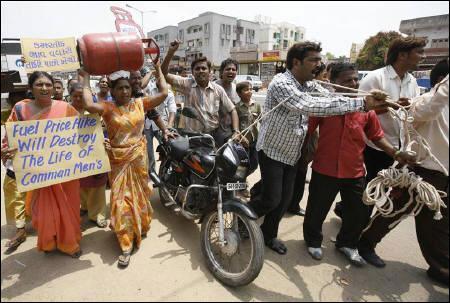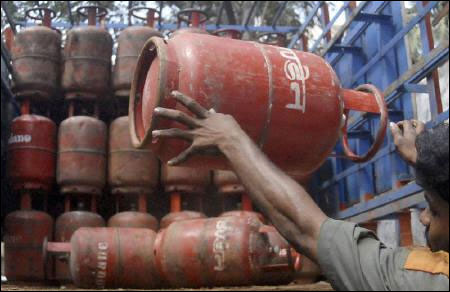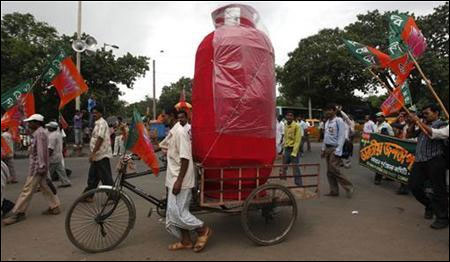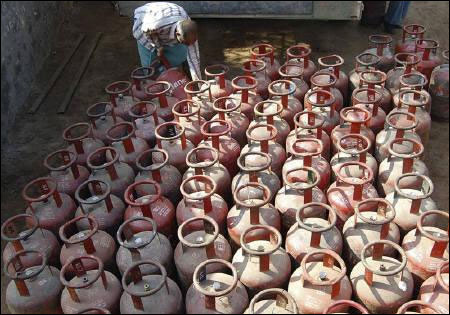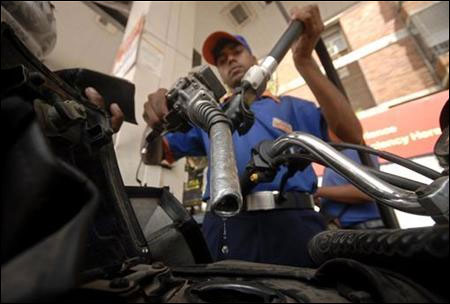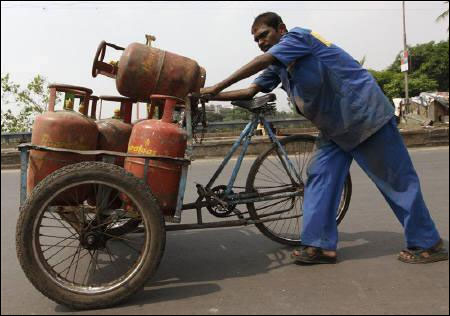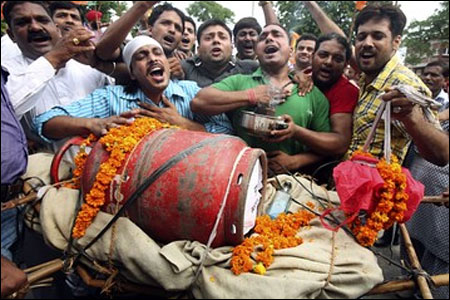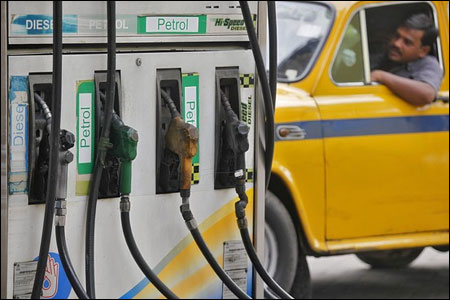 | « Back to article | Print this article |
Gas cylinder cap has lessons for the future
If the government could create a convincing case for capping gas cylinder numbers, there is no reason why the government cannot build a solid case, using similar methods, for a further increase in diesel price.
Of all the decisions that the United Progressive Alliance government took last week to end a long period of policy paralysis, the one that has caused the least provocation to opposition political parties is the annual capping of the supply of subsidised cooking gas cylinders.
This is surprising, as its net effect on a householder's annual budget will likely be substantial.
Click on NEXT for more...
Gas cylinder cap has lessons for the future
After consuming six cylinders in a year under the administered pricing regime, a householder's cost of acquiring every additional cylinder during the year will be 88 per cent more than the subsidised price.
For a householder consuming an average of 12 gas cylinders in a year, therefore, the annual outgo on cooking gas would be higher by 44 per cent once the new system is put in place.
This is much higher than the 12 per cent increase in diesel prices.
Click on NEXT for more...
Gas cylinder cap has lessons for the future
The oil marketing companies (OMC), too, are likely to book more sustainable gains once the supply of subsidised cooking gas is capped.
A little more than half the cooking gas customers of oil companies, estimated at around 140 million, consume more than six cylinders a year.
The decision on capping the subsidised supplies, therefore, is expected to result in an annualised saving of Rs 10,600 crore (Rs 106 billion), thereby reducing the total under-recovery on cooking gas to Rs 26,000 crore (Rs 260 billion).
Click on NEXT for more...
Gas cylinder cap has lessons for the future
The oil companies' gains will be more sustainable because they are now free to effect monthly revisions in the price of cooking gas, outside the cap of six cylinders a year.
This is, once again, quite unlike diesel where pricing decisions will continue to be taken by the government and therefore will be influenced more by politics and less by international crude oil price trends.
Click on NEXT for more...
Gas cylinder cap has lessons for the future
One reason why the cooking gas pricing reform has faced little resistance is the manner in which the government went about it.
Its initial proposal for capping subsidised gas supplies, framed more than a year ago, was followed up with the launch of a website that made available the pattern of cooking gas consumption by all the 140 million customers of the three OMCs.
Click on NEXT for more...
Gas cylinder cap has lessons for the future
The website helped the government bring to light the nature and extent of misuse of subsidised cooking gas, including by several politicians and important government functionaries - one politician was shown as consuming over 180 gas cylinders a year.
The website was also used by the oil companies to detect fake customers and that led to the cancellation of 4.1 million connections.
Once this became public, even a parliamentary committee endorsed the reform.
Click on NEXT for more...
Gas cylinder cap has lessons for the future
This approach has many lessons for the government in tackling several other similar reforms whose implementation would hurt vested interests.
For an important and tough decision to have a smooth ride, the government needs to build a strong case for it through all-party consultations and dissemination of information that secures a buy-in from important stakeholders.
Click on NEXT for more...
Gas cylinder cap has lessons for the future
If the government could create a convincing case for capping gas cylinder numbers, there is no reason why the government cannot build a solid case, using similar methods, for a further increase in diesel price - ideally in small doses, instead of rejigging tax rates or allowing under-recoveries, already at an alarmingly high level, to rise again.
